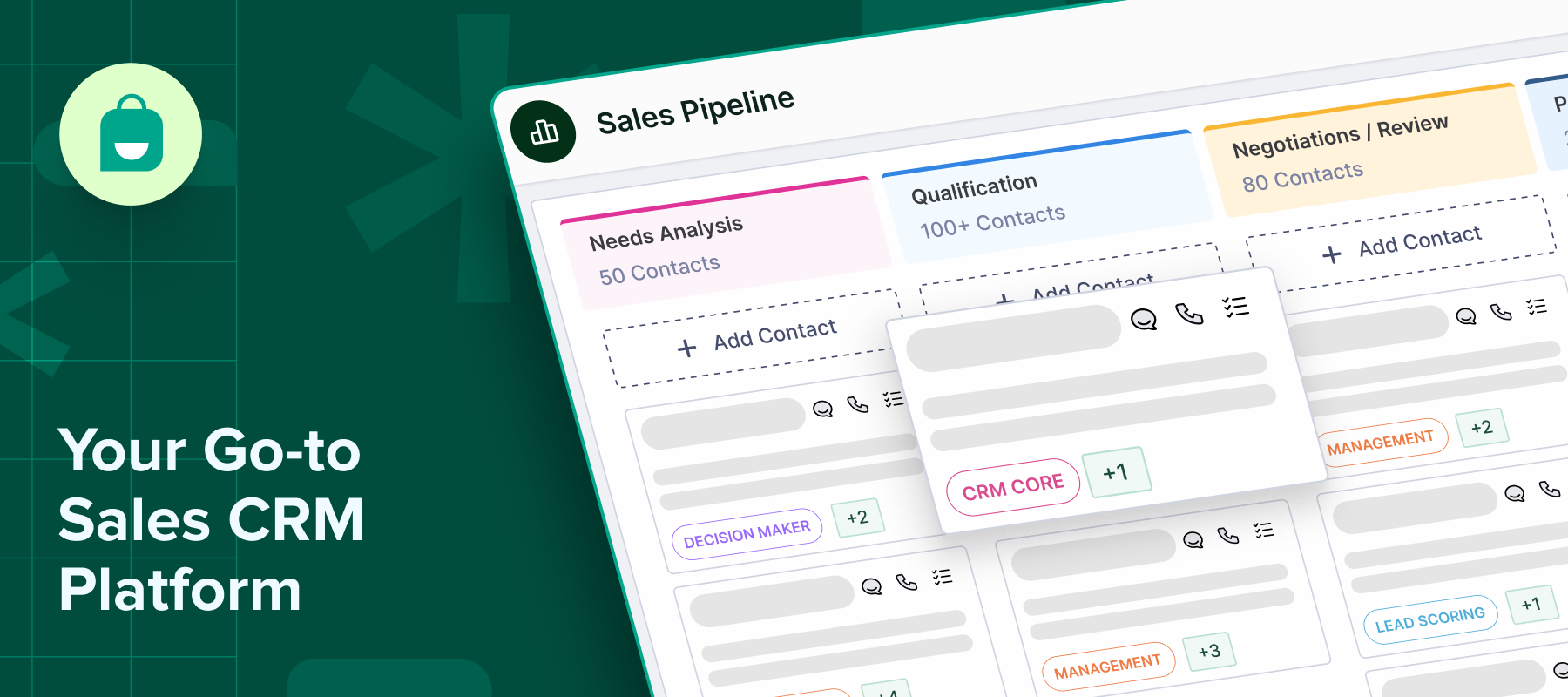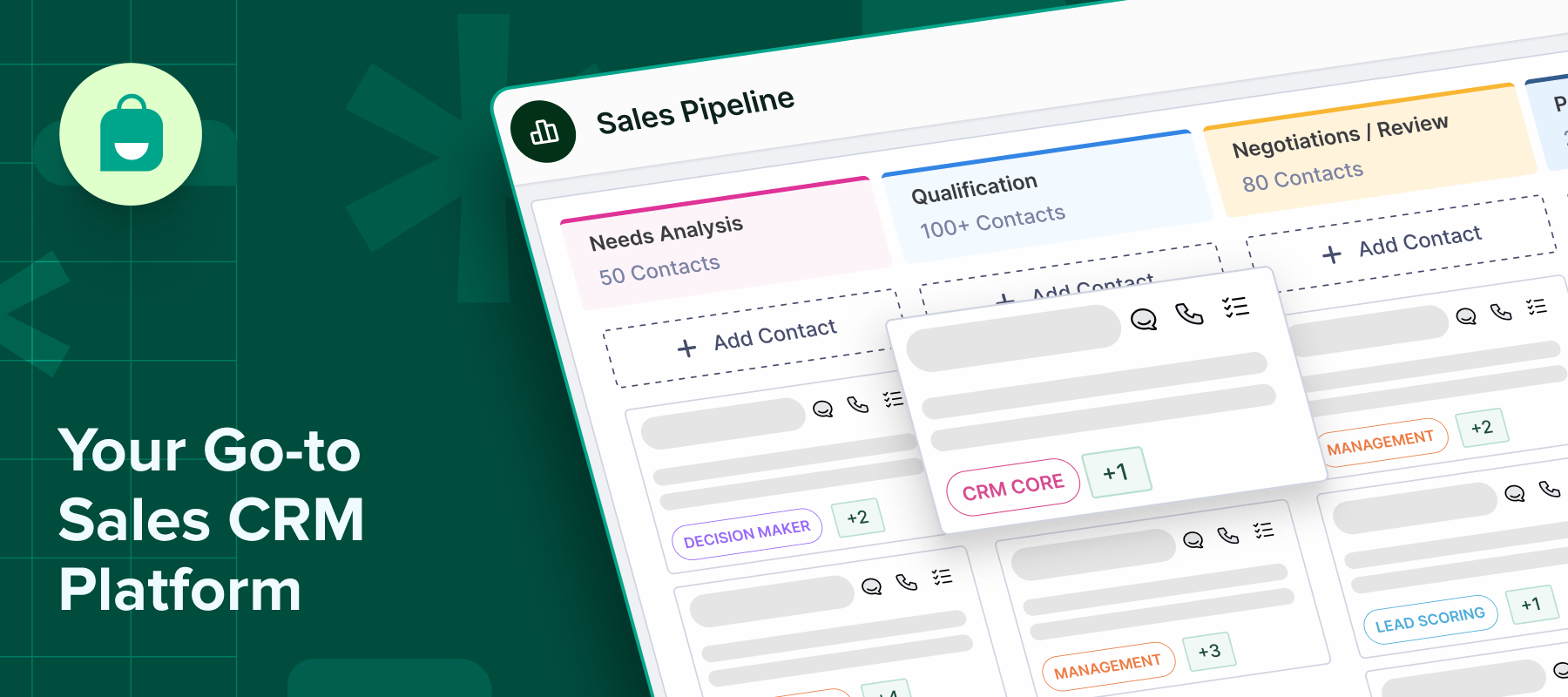Sales pipeline management is often easier said than done.
It involves tracking multiple conversations, mapping customer journeys, and staying on top of every interaction. With so many moving parts, it’s easy to lose track of details and even easier to lose potential deals.
This is where a WhatsApp Sales CRM can help.
Understanding Sales Pipelines in WhatsApp CRM
A sales pipeline is a structured, visual overview of where potential buyers stand in the sales process from first contact to final purchase. It helps businesses track opportunities, understand which deals are likely to close, and identify where leads may be stalling.
For sales reps and managers, it’s a practical tool for forecasting revenue, monitoring performance, and keeping the entire team aligned on targets and timelines.
What Are the Stages of a Sales Pipeline?
The stages of a sales pipeline represent the steps a potential customer goes through before making a purchase. These stages help sales teams track progress, identify bottlenecks, and move deals forward with purpose.
Here’s a breakdown of the typical sales pipeline stages:
1.Prospecting: This is the discovery phase, where potential customers become aware of your business, often through ads, social media, or referrals.
2.Lead Qualification: Once someone shows interest, you assess whether they’re a good fit. This could involve offering a lead magnet (like an eBook or webinar) to gauge intent.
3.Demo or Meeting: If qualified, the next step is a meeting or product demo to understand their needs and show how your solution fits.
4.Proposal: At this point, you present a tailored solution, highlighting value, pricing, and your unique advantages.
5.Negotiation and Commitment: At this point, both parties align on terms. You may tweak scope, pricing, or timelines to finalize the deal structure.
6. Opportunity Won: The deal is closed, and the focus shifts to delivery and execution.
7.Post-Purchase: This stage focuses on delivering ongoing support, nurturing customer satisfaction, and identifying opportunities for upselling, cross-selling, or renewal. It’s also the ideal time to request referrals.
So, where does WhatsApp CRM fit in?
At every stage from the first interaction to post-sale follow-ups, WhatsApp CRM helps centralize conversations, capture customer data, and keep the journey smooth and personalized. It ensures no lead is overlooked, no deals are lost, and every message adds momentum.
Whether you’re scheduling demos, handling objections, or checking in after the sale, WhatsApp CRM keeps your pipeline connected, consistent, and easy to manage.
Key Features of WhatsApp CRM for Pipeline Management
Here are some key features of WhatsApp CRM for pipeline management:
Lead capturing and qualification
A WhatsApp CRM can automatically capture leads from multiple channels and bring them into one centralized inbox. It lets you tag leads, auto-assign them to the right reps, and trigger qualification flows based on their responses or intent, allowing your team to focus on high-intent prospects only.
Automated follow-ups and reminders
Keeping track of follow-ups manually often leads to missed opportunities. With tools like Interakt, you can automate follow-ups, send reminders for demos, payment links, or pending actions directly through WhatsApp. This keeps conversations active, reduces drop-offs, and ensures consistent engagement without additional workload on your sales team.
Real-time communication and updates
WhatsApp CRMs enable instant, two-way communication with leads, making it easy to respond to queries, send proposals, share documents, or provide real-time updates. Every conversation stays in one thread, with full context, helping reps maintain momentum and close deals faster.
Analytics and performance tracking
To move deals faster, you need to know what’s working. WhatsApp CRM like Interakt offers built-in analytics to track lead response times, rep activity, and conversion stages. It gives managers a real-time view of pipeline health and helps the team double down on what drives results.
Best Practices for Managing Sales Pipelines with WhatsApp CRM
Here are some best practices for managing sales pipelines with WhatsApp CRM:
1. Personalized messaging strategies
Use the data inside your WhatsApp CRM (name, stage, previous interactions, product interest) to create messages that speak directly to where the lead is in their journey.
For example, instead of sending a standard follow-up, refer to the exact product they asked about or a concern they raised earlier. This makes communication more relevant and increases the chances of moving leads forward in the pipeline.
2. Timely follow-ups and engagement
Use automation to ensure no lead goes cold. Set follow-up triggers based on time delays, actions taken, or stage in the pipeline. Timely engagement helps maintain momentum and shows that you’re attentive and reliable.
3. Utilizing CRM analytics for decision-making
Use built-in analytics in your CRM to track which types of leads convert faster, where drop-offs happen, and which reps are closing the most. This data helps you refine messaging, improve sales processes, and allocate resources more effectively.
For instance, if analytics show most drop-offs happen after a demo, your messaging or proposal might need tweaking.
4. Integrating WhatsApp CRM with other tools
Connect your WhatsApp CRM with tools like Google Sheets, lead forms, calendars, or payment gateways. It reduces manual work, keeps your data in sync, and allows your team to collaborate without switching platforms. With everything connected, you can track lead progress more accurately, measure what’s driving results, and make smarter decisions.
Conclusion
Using a WhatsApp CRM allows businesses to simplify and streamline their entire sales process.
It organizes conversations, ensures consistent follow-ups, and personalizes customer interactions. More importantly, it helps move deals through the pipeline efficiently and without delays.
If you want to manage your sales pipeline smarter, faster, and inside WhatsApp, Interakt CRM is built for that.


